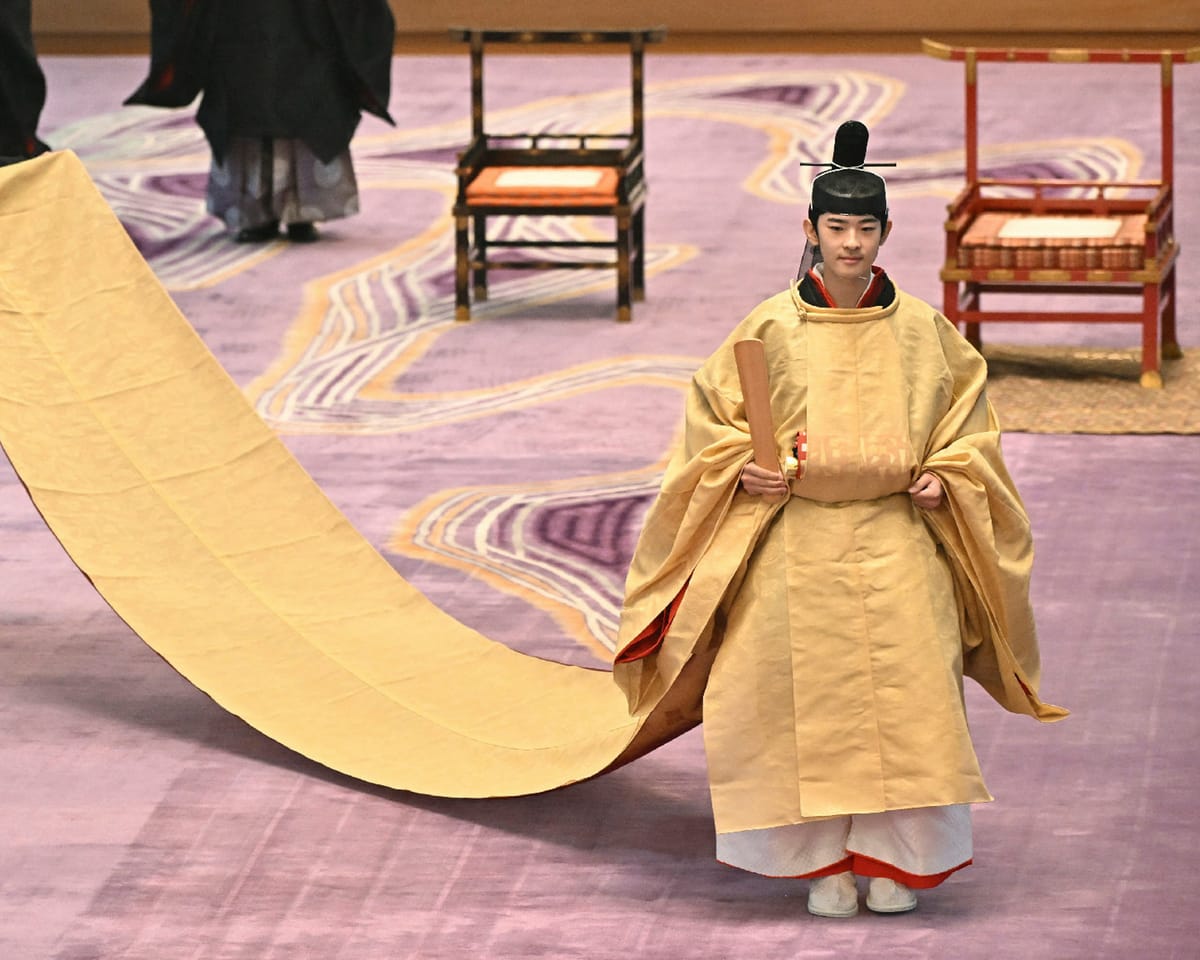Japan has marked the coming of age of Prince Hisahito with a formal ceremony at the Imperial Palace, where discussions about succession continue.
The nephew of Emperor Naruhito, Hisahito was presented with a black silk and lacquer crown during the event in Tokyo, signifying the start of his adulthood within the imperial family.
"I am grateful to receive this crown at my coming-of-age ceremony," Hisahito stated. "I will carry out my responsibilities with a sense of duty as an adult member of the imperial household."
While the emperor has a daughter, Princess Aiko, the 23-year-old has been excluded from succession due to traditions that only permit male heirs.
"As a younger member of the imperial family, I am committed to fulfilling my role," Hisahito remarked earlier this year.
At 19, he is second in line to the throne after his father. During the Tokyo ceremony, he paid respects to ancestors and deities.
Custom dictates that only a man may inherit the throne, a lineage said to stretch back 2,600 years. However, surveys indicate significant public approval for a female monarch.
Discussions about imperial succession have persisted for years. In 2005, a government panel suggested allowing the eldest child, regardless of gender, to ascend.
This proposal seemed to open a path for Princess Aiko, but the birth of Hisahito the following year halted the debate.
Supporters of tradition argue that preserving the male line is essential to Japan’s identity, warning that altering the system could create division.
Under the current constitution, the imperial family holds no governing authority.
Princesses must leave the household upon marriage, leading some to suggest they retain their public roles after marrying. Others advocate for allowing distant relatives to rejoin the family.
This year, Hisahito admitted he has "not yet given much thought" to marriage, a matter that may prove complex.
Historically, royal spouses have faced intense scrutiny, particularly regarding producing male heirs.
Empress Masako, a former diplomat, struggled with stress-related illness after joining the family, which some attribute to pressure to have a son. Similarly, Empress Emerita Michiko, Naruhito’s mother, faced health challenges linked to stress.
Hisahito’s sister, Mako, married her college sweetheart, Kei Komuro. Before leaving for the U.S., where they recently had a child, she endured tabloid scrutiny over reports of financial troubles in his family, leading to her diagnosis of post-traumatic stress disorder.
Though many support amending succession rules, broader concerns like inflation overshadow the issue, noted royal historian Hideya Kawanishi. "Public interest in succession debates has waned amid other pressing matters," he observed.
Read next

"Indonesia school collapse: rescue efforts conclude with 67 fatalities"
Search Ends After Indonesian School Collapse Leaves Dozens Dead
Indonesian rescuers concluded their search on Tuesday for victims trapped beneath the rubble of a collapsed Islamic boarding school in East Java, after recovering more than 60 bodies, authorities confirmed.
The tragedy in the town of Sidoarjo struck last week when

"French PM makes last-ditch effort to save government as crisis deepens – Europe updates"
France's Political Standoff Continues as Prime Minister Seeks Cross-Party Support
France remains at a political stalemate as the outgoing prime minister, Sébastien Lecornu, makes a final attempt to gather support from rival parties for a new government.
President Emmanuel Macron assigned Lecornu, 39, to form a government in

"Macron calls emergency talks with parties to swiftly pick new PM"
Emmanuel Macron has called upon the leaders of several political factions to his office, urging them to demonstrate "collective responsibility" as he seeks to appoint a new prime minister amid growing political turmoil.
All parties except Marine Le Pen’s far-right National Rally, the largest opposition group, and

